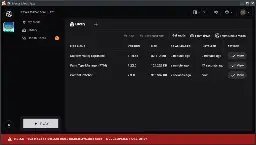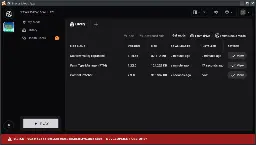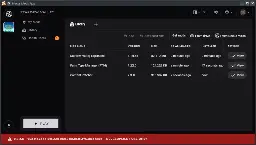Nexus mods want feedback from Linux / Steam Deck users on their new cross-platform app
Nexus mods want feedback from Linux / Steam Deck users on their new cross-platform app
www.gamingonlinux.com
Nexus mods want feedback from Linux / Steam Deck users on their new cross-platform app
Yesterday, July 1st, they announced the Alpha release of this next-generation mod manager and their new Product Manager got in touch to mention they "would be really keen to get feedback from Linux users". So this is your chance to ensure Linux (and Steam Deck) finally become a first-class citizen for game modding.


